|
Books Should Be Free Loyal Books Free Public Domain Audiobooks & eBook Downloads |
|
|
Books Should Be Free Loyal Books Free Public Domain Audiobooks & eBook Downloads |
|
Fiction |
|---|
|
Book type:
Sort by:
View by:
|
By: Christopher Morley (1890-1957) | |
|---|---|
 In the Sweet Dry and Dry
In the Sweet Dry and Dry
Written just before Prohibition to entail the possible troubles that might happen en route. Both sides of the argument, or battle as the case may be, strike out with various over-top methods like legislating most fruits and vegetables as unsafe or intoxicating large groups with breathable alcohol. | |
By: Christopher Pearse Cranch (1813-1892) | |
|---|---|
 The Last of the Huggermuggers
The Last of the Huggermuggers
| |
By: Cicely Hamilton (1872-1952) | |
|---|---|
 William, An Englishman
William, An Englishman
William – an Englishman is a 1919 novel by Cicely Hamilton. The novel explores the effect of the First World War on a married couple during the rise of Socialism and the Suffragette movement. It was originally published by Skeffington & Son before being reprinted by Persephone Books in 1999. Described as 'a passionate assertion of the futility of war' by The Spectator, William - an Englishman won the first Prix Femina-Vie Heureuse Anglais prize in 1920. | |
By: Clara de Chatelain (1807-1876) | |
|---|---|
 Bo-Peep Story Books
Bo-Peep Story Books
| |
 Up! Horsie! An Original Fairy Tale
Up! Horsie! An Original Fairy Tale
| |
By: Clara Dillingham Pierson (1868-1952) | |
|---|---|
 Among the Farmyard People
Among the Farmyard People
A wonderful children's book filled with engaging stories about various farmyard animals. Each book ending with a moral which gently encourages children towards better behaviour and attitudes. | |
By: Clara E. Laughlin (1873-1941) | |
|---|---|
 Everybody's Lonesome
Everybody's Lonesome
Twenty-year-old Mary Alice is bored with her home life and envious of the beautiful, poised, popular girls she sees at parties. At her mother's advice, she reluctantly visits her Godmother in New York, who teaches Mary Alice a little homemade "magic" and the one great Secret that will put her at ease with other people. How can Mary Alice learn to use these gifts to bring happiness into her own life and other lives? Although this charming novelette is subtitled "A True Fairy Story," it reveals that most of the "magic" in life can be found within ourselves. (Introduction by Jan MacGillivray) | |
By: Clara Ingram Judson (1879-1950) | |
|---|---|
 Mary Jane's City Home
Mary Jane's City Home
| |
By: Clara Louise Burnham (1854-1927) | |
|---|---|
 In Apple-Blossom Time A Fairy-Tale to Date
In Apple-Blossom Time A Fairy-Tale to Date
| |
 Jewel's Story Book
Jewel's Story Book
| |
By: Clara Mulholland | |
|---|---|
 Naughty Miss Bunny A Story for Little Children
Naughty Miss Bunny A Story for Little Children
| |
By: Clara Reeve (1729-1807) | |
|---|---|
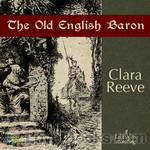 The Old English Baron
The Old English Baron
The story follows the adventures of Sir Philip Harclay, who returns to medieval England to find that the castle seat and estate of his friend Lord Lovel have been usurped. A series of revelations, horrors and betrayals climax in a scene of single combat in which good battles evil for the return of the prize. | |
By: Clara Viebig (1860-1952) | |
|---|---|
 Absolution
Absolution
| |
By: Clarence Budington Kelland (1881-1964) | |
|---|---|
 Youth Challenges
Youth Challenges
| |
By: Clarence Darrow (1857-1938) | |
|---|---|
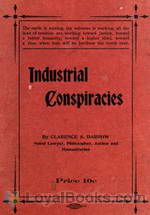 Industrial Conspiracies
Industrial Conspiracies
| |
By: Clarence Day, Jr. (1874-1935) | |
|---|---|
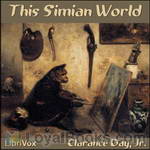 This Simian World
This Simian World
Clarence Day, Jr., best known for his work Life with Father, presents a satirical speculation on how the world might be different if we apes had not risen to prominence, but rather one of the other species had become dominant in our place. | |
By: Clarence Edward Mulford (1883-1956) | |
|---|---|
 Bar-20 Days
Bar-20 Days
| |
By: Clarence Hawkes (1869-1954) | |
|---|---|
 Black Bruin The Biography of a Bear
Black Bruin The Biography of a Bear
| |
By: Clarence Young | |
|---|---|
 Jack Ranger's Western Trip Or, from Boarding School to Ranch and Range
Jack Ranger's Western Trip Or, from Boarding School to Ranch and Range
| |
 Ned, Bob and Jerry on the Firing Line The Motor Boys Fighting for Uncle Sam
Ned, Bob and Jerry on the Firing Line The Motor Boys Fighting for Uncle Sam
| |
By: Claude A. Labelle | |
|---|---|
 The Ranger Boys and the Border Smugglers
The Ranger Boys and the Border Smugglers
| |
By: Clayton Meeker Hamilton (1881-1946) | |
|---|---|
 A Manual of the Art of Fiction
A Manual of the Art of Fiction
| |
 Materials and Methods of Fiction With an Introduction by Brander Matthews
Materials and Methods of Fiction With an Introduction by Brander Matthews
| |
By: Cliff Campbell | |
|---|---|
 Hooded Detective: 6 Action Packed Pulp Detective Stories
Hooded Detective: 6 Action Packed Pulp Detective Stories
Evil lurks in the hearts and minds of men and many nefarious schemes are hatched by these gangsters, mob bosses and super villains. But thankfully, equally brave, talented detectives are there to track them down and thwart their twisted plans. These six stories, along with two "true fact detective shorts" were in the magazine Hooded Detective, January 1942. Are they well written? well, no, but they are fun. Here are a few of the blurbs: "They had expected spaghetti with meat sauce for dinner, but were served instead, hot lead, with a little bit of blood on the side... | |
By: Clifford D. Simak (1904-1988) | |
|---|---|
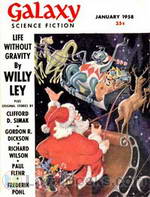 The World That Couldn't Be
The World That Couldn't Be
Layard was a curiosity to sociologists. The planet supported thriving tribes of natives but they were genderless. How could tribes form without families? But Gavin Duncan didn’t care. He had come to Layard to farm vua plants. Their berries cured mental illnesses and were one of the most expensive commodities in the galaxy. He was going to make his fortune if he could just keep the Cytha at bay, a big, dumb animal that could munch through 10 rows of vua in a night. Despite native superstitions he was going to have to hunt and kill the pest if he was to protect his crop... | |
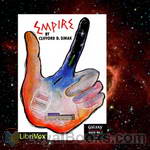 Empire
Empire
In a future time, the solar system is powered by one energy source, controlled by one huge organisation, which has plans to use this control to dominate the planets. Unknown to them, a couple of maverick scientists accidentally develop a completely new form of energy supply and threaten the corporation's monopoly. Naturally, the corporation can't allow this to happen... A stunning story about the manipulation of pure energy, climaxing in interstellar conflict. | |
By: Clifford Simak (1904-1988) | |
|---|---|
 Hellhounds of the Cosmos
Hellhounds of the Cosmos
From Astounding Stories of 1932. Earth is being attacked by horrible black monsters that appear from nowhere and destroy and kill everything and everyone in their paths. Nothing affects them, nothing stops them; they are impervious to all weapons. Earth is doomed. But there is one hope and it rests on the shoulders of 98 brave men. Can they do it? can they find a way of retaliating? Listen and find out. | |
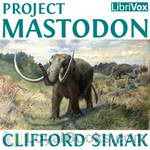 Project Mastodon
Project Mastodon
Clifford Simak deals with the implications of time travel in his own unique way in this story. What if a group of guys did it on their own, without any help from government or industry? On a shoestring,so to speak? Would anyone believe them? What would you do if you could go back 150,000 years to a time when mastodons and saber toothed tigers roamed North America? And what happens when they run out of money? All these questions are explored in the usual humorous, wry Simak way in this story. | |
By: Clifton Bingham (1859-1913) | |
|---|---|
 The Animals' Rebellion
The Animals' Rebellion
| |
By: Clifton Johnson | |
|---|---|
 The Farmer's Boy
The Farmer's Boy
A year in the life of a New England farm boy at the end of the 19th century (Introduction by LC) | |
By: Colette (1873-1954) | |
|---|---|
 Barks and Purrs
Barks and Purrs
Barks and Purrs is a collection of seven episodes in the lives of Toby-Dog, a French Bulldog, and Kiki-the-Demure, a Maltese cat, living in a comfortable household. The episodes cover a hot afternoon, a train ride, and what happened when dinner was late or their mistress was ill. We hear about the first fire in autumn, a heavy storm, and about a visitor in the household.Sidonie-Gabrielle Colette-Willy was throughout her life a controversial French novelist. She published around 50 novels; the best known is “Gigi”. | |
By: Colin Munro | |
|---|---|
 Fern Vale (Volume 1) or the Queensland Squatter
Fern Vale (Volume 1) or the Queensland Squatter
| |
By: Conrad H. (Conrad Harvey) Sayce (1888-1935) | |
|---|---|
 In the Musgrave Ranges
In the Musgrave Ranges
| |
By: Constance Cary Harrison (1843-1920) | |
|---|---|
 The Old-Fashioned Fairy Book
The Old-Fashioned Fairy Book
"And now, mamma, until your tea is ready, we know what you must do," said the children, in a breath. "Tell us a story—a 'real, truly' fairy tale, about a giant and a dwarf, lots and lots of fairies, a prince and a beautiful princess with hair to her very feet, a champion with a magic sword, a dragon-chariot, a witch dressed in snake-skin—and, if you can, an ogre. Don't punish anybody but the witch and the ogre; and please don't have any moral, only let everybody 'live in peace and die in a pot of grease,' at the end of it... | |
By: Constance Elizabeth Maud (1857-1929) | |
|---|---|
 No Surrender
No Surrender
Written from the midst of the struggle for female suffrage, Constance Elizabeth Maud’s novel No Surrender (1911) is a Call to Arms. It is a dramatic narrative portraying key players and historical events in the battle for the Vote for Women in Britain. Jenny Clegg is a Lancashire millgirl working long, hard hours under unhealthy conditions in order to support her mother and younger siblings, only to have her father take possession of her savings. In order to seek the rights to improved work conditions, equal pay, and many other human rights, she joins the movement of women seeking political representation... | |
By: Cornelia Meigs (1884-1973) | |
|---|---|
 The Windy Hill
The Windy Hill
When two children come to stay with their cousin, they immediately realize something is wrong, but no one will tell them what. Their cousin is strangely altered: nervous, preoccupied, hardly aware of their existence. They soon discover that a conflict is brewing among the hills and farms of the Medford Valley, one whose origins reach back over a century. They must piece it together from scattered clues, and from the stories told to them by a mysterious bee keeper and his daughter. This 1922 Newbery Honor Book tells of the traits that run in a family—honor, stubborn pride, and a dark lust for wealth—and how they shape the destinies of three generations. (Introduction by Peter Eastman) | |
By: Cornelius Mathews (1817-1889) | |
|---|---|
 Chanticleer A Thanksgiving Story of the Peabody Family
Chanticleer A Thanksgiving Story of the Peabody Family
| |
By: Corra Harris (1869-1935) | |
|---|---|
 A Circuit Rider's Wife
A Circuit Rider's Wife
| |
 The Jessica Letters: An Editor's Romance
The Jessica Letters: An Editor's Romance
| |
By: Cosmo Hamilton (1879-1942) | |
|---|---|
 Who Cares? a story of adolescence
Who Cares? a story of adolescence
| |
By: Coulson Kernahan (1858-1943) | |
|---|---|
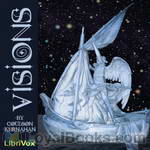 Visions
Visions
Deeper questions of life and death, and of God’s relationship to man, are explored in this collection of “dreams” by a noted English novelist and literary critic. A man takes an uncertain step into the next world as his life ends – Defendants at the Last Judgment hurl their own accusations at the Judge – An angel arrives on Christmas Eve to guide one soul through a night of despair and doubt – Flowers in a garden contemplate their own mortality – What would it mean if the world renounced Christ, or God took Christ away from the world? – And in a world of the future, pleasure and luxury are pursued … and children are nowhere to be found. (Introduction by D. Leeson) | |
By: Courtney Ryley Cooper (1886-1940) | |
|---|---|
 The Cross-Cut
The Cross-Cut
| |
 The White Desert
The White Desert
| |
By: Coventry Kersey Dighton Patmore (1823-1896) | |
|---|---|
 The Children's Garland from the Best Poets
The Children's Garland from the Best Poets
| |
By: Covington Clarke | |
|---|---|
 Aces Up
Aces Up
A crack American flying troop has been sent to France, where they await further instructions. They are concerned that their extensive talents will not be put to good use in the war. Major Cowan introduces Lt. McGee as the British instructor for the crew. It turns out the Brit is actually an American, born in the U.S., even though his parents were British. McGee and Larkin are flying partners. Out on a mission, McGee spots a small enemy plane in a searchlight, probably intent on dropping flares to mark targets for bombers... | |
By: Credo Fitch Harris (1874-1956) | |
|---|---|
 Wings of the Wind
Wings of the Wind
| |
By: Cy Warman (1855-1914) | |
|---|---|
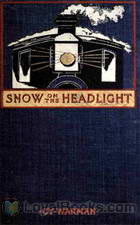 Snow on the Headlight A Story of the Great Burlington Strike
Snow on the Headlight A Story of the Great Burlington Strike
| |
By: Cynthia Stockley (1883-1936) | |
|---|---|
 Blue Aloes Stories of South Africa
Blue Aloes Stories of South Africa
| |
By: Cyrano de Bergerac (1619-1655) | |
|---|---|
 Voyage to the Moon
Voyage to the Moon
This is an edition by Professor Curtis Page of the Lovell translation of a seminal work of science fiction by Cyrano de Bergerac. Arguably a whimsical forerunner to the adventure stories of Jules Verne, and the French sci-fi tradition generally, it is a utopian novel of space travel complete with rocket powered flight and extra-terrestrial beings. | |
By: Cyril Burleigh | |
|---|---|
 The Hilltop Boys A Story of School Life
The Hilltop Boys A Story of School Life
| |
By: Cyrus Macmillan | |
|---|---|
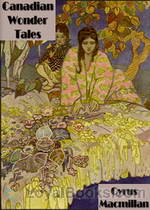 Canadian Wonder Tales
Canadian Wonder Tales
This is a collection of folk tales originating in Canada, some from aboriginal oral tradition and others due to early French, Scottish, Irish and British colonists. They are presented as “fables” though many are without obvious moral. | |
By: Cyrus Townsend Brady (1861-1920) | |
|---|---|
 A Little Book for Christmas
A Little Book for Christmas
| |
 And Thus He Came
And Thus He Came
These short stories, perhaps we might call them modern parables, are not the usual fare of warm and fuzzy Christmas stories (pleasing as those are) but rather life events and crises triggered by Christmas, present or imminent. Brady was a journalist, historian, adventure writer, and Episcopal priest. | |
 The Eagle of the Empire A Story of Waterloo
The Eagle of the Empire A Story of Waterloo
| |
 Sir Henry Morgan, Buccaneer A Romance of the Spanish Main
Sir Henry Morgan, Buccaneer A Romance of the Spanish Main
| |
By: D. B. Casteel (1877-1958) | |
|---|---|
 Behavior of the Honey Bee in Pollen Collecting
Behavior of the Honey Bee in Pollen Collecting
The value of the honey bee in cross pollinating the flowers of fruit trees makes it desirable that exact information be available concerning the actions of the bee when gathering and manipulating the pollen. The results recorded in this manuscript are also of value as studies in the behavior of the bee and will prove interesting and valuable to the bee keeper. The work here recorded was done by Dr. Casteel during the summers of 1911 and 1912. | |
By: D. H. Lawrence (1885-1930) | |
|---|---|
 The Rainbow
The Rainbow
Set against the backdrop of a rapidly industrializing England, the bewildering shift in social structure, the fading away of traditions and the advent of new ways of life, The Rainbow by DH Lawrence depicts how one family's story becomes the story of a society. Originally planned as a novel titled The Sisters, Lawrence finally split the theme into two separate novels after many revisions and rewrites. The Rainbow is the first novel in the Brangwen family saga. Tom Brangwen is a small time farmer in rural Nottinghamshire... | |
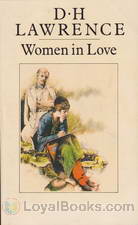 Women in Love
Women in Love
If you have read DH Lawrence's The Rainbow, you'd certainly want to read the sequel, Women in Love. Published in 1920, the two books were originally meant to be a single work, spanning several generations of the Brangwen family, especially the women. However, a complicated publishing history, delays and editorial revisions, followed by the hostile reception and controversies that faced The Rainbow led to a gap of five years between the two books. Yet, by 21st century standards, Women in Love seems almost tame, and modern-day readers may well be bewildered by the amount of criticism it generated among the custodians of morals in an earlier age... | |
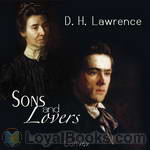 Sons and Lovers
Sons and Lovers
This intimate portrait of a coal-miner’s family fastens on each member in turn: Walter Morel, the collier; Gertrude, his wife; and the children: William, Annie, Arthur, and Paul. When Mrs. Morel begins to be estranged from her husband because of his poor financial sense and his drinking habits, she comes to inhabit the lives of her children – most particularly, her sons. She is determined that they will grow to be something more than men that come home blackened with coal dust every day and roaring with drink every night... | |
 The Trespasser
The Trespasser
Brief Encounter meets Tristan und Isolde – on the Isle of Wight, under a vast sky florid with stars. The consequence is tragic indeed for one of the parties, Siegmund, when he sacrifices family life for a few days’ transcendent rapture. His lover, the self-contained Helena, is strong enough to bear a return to the scruffy suburbs. Redemption of a kind is granted to the deserted wife, Beatrice. But between these robust Lawrentian women Siegmund is cancelled out. His love-death is no cosmic swoon but a sordid exit in an unkempt box-room.In this very British romance, there is no earthly escape from outworn attachments and life’s deadening routine… | |
 The Prussian Officer and Other Stories
The Prussian Officer and Other Stories
The collection of short stories – of which The Prussian Officer is one – was Lawrence’s first such book. A German officer and his orderly are the focus of the piece and, while socially the superior of his orderly, the officer demonstrates his is the distinctly baser character. (Introduction by Cathy Barratt) | |
 Aaron's Rod
Aaron's Rod
Flutist Aaron Sisson is caught up in the aftermath of WWI. A lost soul, he attempts to find himself in the comfort of bar-room talk and alcohol and a woman. Moving on, he spends time with a mining executive's relatives. But he finds the family a stuffy middle-class lot, bored with each other and themselves. He leaves his wife and children and strikes out for the open road. During a playing engagement at an opera performance, he reunites with the mining executive's family. Talk is of love and war, none of it very satisfying to anyone... | |
 Lost Girl
Lost Girl
"There is no mistake about it, Alvina was a lost girl. She was cut off from everything she belonged to." In this most under-valued of his novels, Lawrence once again presents us with a young woman hemmed in by her middle-class upbringing and (like Ursula Brangwen in The Rainbow) longing for escape. Alvina Houghton's plight, however, is given a rather comic and even picaresque treatment. Losing first her mother, a perpetual invalid, and later her cross-dressing father, a woefully ineffectual small-scale entrepreneur, Alvina feels doomed to merge with the tribe of eternal spinsters who surround her in the dreary mining community of Woodhouse... | |
 The Prussian Officer
The Prussian Officer
| |
 Wintry Peacock
Wintry Peacock
| |
 White Peacock
White Peacock
Lawrence’s first novel is set in Nethermere (his name for the real-life Eastwood in Nottinghamshire). The plot is narrated by Cyril Beardsall and focuses in particular on the relationship of his sister Lettie with two admirers, the more handsome and down to earth George and the more effete gentleman Leslie. She eventually marries Leslie although she is sexually attracted to George. George marries the conventional Meg and both marriages end in unhappiness. The countryside of the English midlands is beautifully evoked and there is powerful description also of the impact of industrialisation on both town and country. | |
 Sons and Lovers (Version 2)
Sons and Lovers (Version 2)
Lawrence summarised the plot of Sons and Lovers in a letter to Edward Garnett in 1912: “It follows this idea: a woman of character and refinement goes into the lower class, and has no satisfaction in her own life. She has had a passion for her husband, so her children are born of passion, and have heaps of vitality. But as her sons grow up she selects them as lovers — first the eldest, then the second. These sons are urged into life by their reciprocal love of their mother — urged on and on... | |
By: D. M. (David Macbeth) Moir (1798-1851) | |
|---|---|
 The Life of Mansie Wauch tailor in Dalkeith
The Life of Mansie Wauch tailor in Dalkeith
| |
 The Life of Mansie Wauch Tailor in Dalkeith, written by himself
The Life of Mansie Wauch Tailor in Dalkeith, written by himself
| |
By: D. Torbett | |
|---|---|
 The Canadian Photoplay title of The Land of Promise
The Canadian Photoplay title of The Land of Promise
| |
By: D. W. (David W.) Belisle | |
|---|---|
 The American Family Robinson or, The Adventures of a Family lost in the Great Desert of the West
The American Family Robinson or, The Adventures of a Family lost in the Great Desert of the West
| |
By: Daisy Ashford (1881-1972) | |
|---|---|
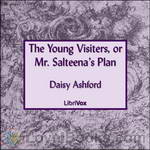 The Young Visiters, or Mr. Salteena's Plan
The Young Visiters, or Mr. Salteena's Plan
The Young Visiters is a comic romance novella that parodies upper class society of late Victorian England. Social climber Alfred Salteena introduces his young lady friend Ethel to a genuine gentleman named Bernard and, to his irritation, they hit it off. But Bernard helps Alfred in his plan to become a gentleman, which, Alfred hopes, will help him win back Ethel. | |
By: Dallas McCord Reynolds (1917-1983) | |
|---|---|
 5 Science Fiction Stories by Mac Reynolds
5 Science Fiction Stories by Mac Reynolds
Five early stories by one of my favorite SF writers, Mack Reynolds. Medal of Honor is an intriguing look into the mind of someone who is above the law; who cannot commit a crime. How will he act? especially if he is a self centered drunk? Potential Enemy is story about the sad state of human minds that are ruled by fear and paranoia. Happy Ending is an SF story about the far future when the last solar system wide dictator has been finally defeated and what will he do? What will he do? This is also an exploration of mental megalomania and it's effects... | |
By: Dame Rose Macaulay (1881-1958) | |
|---|---|
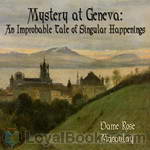 Mystery at Geneva: An Improbable Tale of Singular Happenings
Mystery at Geneva: An Improbable Tale of Singular Happenings
Henry Beechtree, a newspaper correspondent for the British Bolshevist, is covering the latest otherwise sleepy session of the League of Nations in Geneva, when the newly elected President – a member of the Norwegian delegation – disappears mysteriously, adding some badly needed ‘spice’ to Henry's assignment. (Introduction by Cathy Barratt) | |
By: Dame Shirley (d.1906) | |
|---|---|
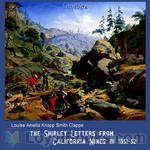 The Shirley Letters from California Mines in 1851-52
The Shirley Letters from California Mines in 1851-52
Louise Amelia Knapp Smith Clappe moved to California from Massachusetts during the Gold Rush of the mid-1800’s. During her travels, Louise was offered the opportunity to write for The Herald about her travel adventures. It was at this point that Louise chose the name “Shirley” as her pen name. Dame Shirley wrote a series of 23 letters to her sister Mary Jane (also known as Molly) in Massachusetts in 1851 and 1852. The “Shirley Letters”, as the collected whole later became known, gave true accounts of life in two gold mining camps on the Feather River in the 1850s... | |
By: Dana Gatlin | |
|---|---|
 Missy
Missy
| |
By: Dandin (6th Century) | |
|---|---|
 Twenty Two Goblins
Twenty Two Goblins
These 22 stories are told by the Goblin to the King Vikram. King Vikram faces many difficulties in bringing the vetala to the tantric. Each time Vikram tries to capture the vetala, it tells a story that ends with a riddle. If Vikram cannot answer the question correctly, the vampire consents to remain in captivity. If the king answers the question correctly, the vampire would escape and return to his tree. In some variations, the king is required to speak if he knows the answer, else his head will burst... | |
By: Dane Coolidge (1873-1940) | |
|---|---|
 Silver and Gold A Story of Luck and Love in a Western Mining Camp
Silver and Gold A Story of Luck and Love in a Western Mining Camp
| |
By: Daniel A. Lord (1888-1955) | |
|---|---|
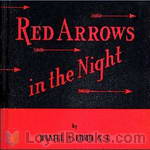 Red Arrows in the Night
Red Arrows in the Night
The Scarlet Archer of Agincourt is claimed by the Erkenwold’s as their family ghost. Tradition held that the death of an important Erkenwold was always heralded by the apparition of the Scarlet Archer. Now in the early years of WWII, the archer has made an appearance on the family estate on the US coast. Is it a ghost or something more sinister, and what does he or she want?This mystery novel was written by Daniel A Lord, S.J., who was a popular American Catholic writer. The subjects of the works in his bibliography range from religion, humor, plays, songs, mysteries and even politics... | |
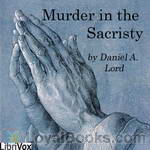 Murder in the Sacristy
Murder in the Sacristy
A sacristan is found murdered in the sacristy and the safe robbed of valuable jewels. All clues seem to point to the priest as the murderer. But is the priest the guilty party - or is it the communist - the nazi - the Senator's wife - or someone else?This mystery novel, set in World War II Chicago, was written by Daniel A Lord, S.J., who was a priest and popular American Catholic writer. The subjects of the works in his bibliography range from religion, humor, plays, songs, mysteries and even politics. His most influential work was possibly in drafting the 1930 Production Code for motion pictures. (Introduction by Maria Therese) | |
 Clouds Cover the Campus
Clouds Cover the Campus
On an American college campus, in the early years of World War II, a professor from Germany is murdered and the plans for a new bomb sight he had invented are missing. Who murdered the professor and stole the plans? And are the accidents, happening with alarming frequency to young student aviators from the campus, really accidents -- or is some unknown conspiracy afoot?This mystery novel was written by Daniel A Lord, S.J., a priest and popular American Catholic writer. The subjects of the works in his bibliography range from religion, humor, plays, songs, mysteries and even politics. His most influential work was possibly in drafting the 1930 Production Code for motion pictures. ( | |
By: Daniel Carter Beard (1850-1941) | |
|---|---|
 The Black Wolf Pack
The Black Wolf Pack
| |
By: Daniel Defoe (1659/1661-1731) | |
|---|---|
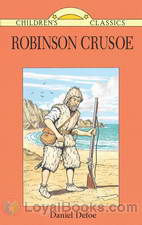 Robinson Crusoe Written Anew for Children
Robinson Crusoe Written Anew for Children
First published in 1719, Robinson Crusoe is a book that marks the beginning of realistic fiction writing in English. Its simple, linear narrative style and the semblance of being a true account and autobiographical in nature led to its great popularity when it first came out. Its original title The Life and Strange Surprising Adventures of Robinson Crusoe of York: Mariner, Who Lived Eight and Twenty Years all alone in an Uninhabited Island on the Coast of America, Near the Mouth of the Great... | |
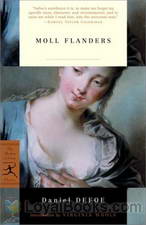 The Fortunes and Misfortunes of the Famous Moll Flanders
The Fortunes and Misfortunes of the Famous Moll Flanders
A woman in prison awaiting a death sentence is given a reprieve because she is pregnant. She migrates to America abandoning the baby to the care of a foster mother. The child, a girl, grows up and begins working as a servant in a wealthy household. Here she is pursued by the two sons of the house and ultimately marries the younger one. When he dies, leaving her with two young children to look after, she begins a life of deception and confidence trickery which ends in great tragedy and disgrace. In her old age, events take a less tragic turn and her redemption comes from sources she least expects... | |
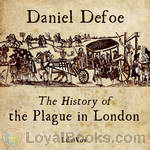 The History of the Plague in London
The History of the Plague in London
The History of the Plague in London is a historical novel offering an account of the dismal events caused by the Great Plague, which mercilessly struck the city of London in 1665. First published in 1722, the novel illustrates the social disorder triggered by the outbreak, while focusing on human suffering and the mere devastation occupying London at the time. Defoe opens his book with the introduction of his fictional character H.F., a middle-class man who decides to wait out the destruction of the plague instead of fleeing to safety, and is presented only by his initials throughout the novel... | |
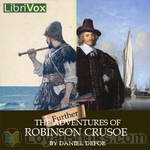 The Further Adventures of Robinson Crusoe
The Further Adventures of Robinson Crusoe
“THE FARTHER ADVENTURES OF ROBINSON CRUSOE; Being the Second and Last Part OF HIS LIFE, And of the Strange Surprizing Accounts of his Travels Round three Parts of the Globe.” After the death of his wife, Robinson Crusoe is overcome by the old wanderlust, and sets out with his faithful companion Friday to see his island once again. Thus begins a journey which will last ten years and nine months, in which Crusoe travels over the world, along the way facing dangers and discoveries in Madagascar, China, and Siberia. | |
 The Life, Adventures & Piracies of Captain Singleton
The Life, Adventures & Piracies of Captain Singleton
The Life, Adventures & Piracies of the Famous Captain Singleton is a "bipartite adventure story whose first half covers a traversal of Africa, and whose second half taps into the contemporary fascination with piracy. It has been commended for its depiction of the homosexual relationship between the eponymous hero and his religious mentor, the Quaker, William Walters.". | |
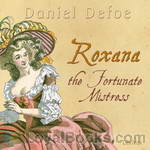 Roxana: The Fortunate Mistress
Roxana: The Fortunate Mistress
The full title of the novel is Roxana: The Fortunate Mistress Or, a History of the Life and Vast Variety of Fortunes of Mademoiselle de Beleau, Afterwards Called the Countess de Wintselsheim. The novel concerns the story of an unnamed "fallen woman", the second time Defoe created such a character (the first was a similar female character in Moll Flanders). In Roxana, a woman who takes on various pseudonyms, including "Roxana," describes her fall from wealth thanks to abandonment by a "fool" of a husband and movement into prostitution upon his abandonment. Roxana moves up and down through the social spectrum several times. | |
 A Journal of the Plague Year, written by a citizen who continued all the while in London
A Journal of the Plague Year, written by a citizen who continued all the while in London
| |
 The Fortunate Mistress (Parts 1 and 2) or a History of the Life of Mademoiselle de Beleau Known by the Name of the Lady Roxana
The Fortunate Mistress (Parts 1 and 2) or a History of the Life of Mademoiselle de Beleau Known by the Name of the Lady Roxana
| |
 The Life and Most Surprising Adventures of Robinson Crusoe, of York, Mariner (1801)
The Life and Most Surprising Adventures of Robinson Crusoe, of York, Mariner (1801)
| |